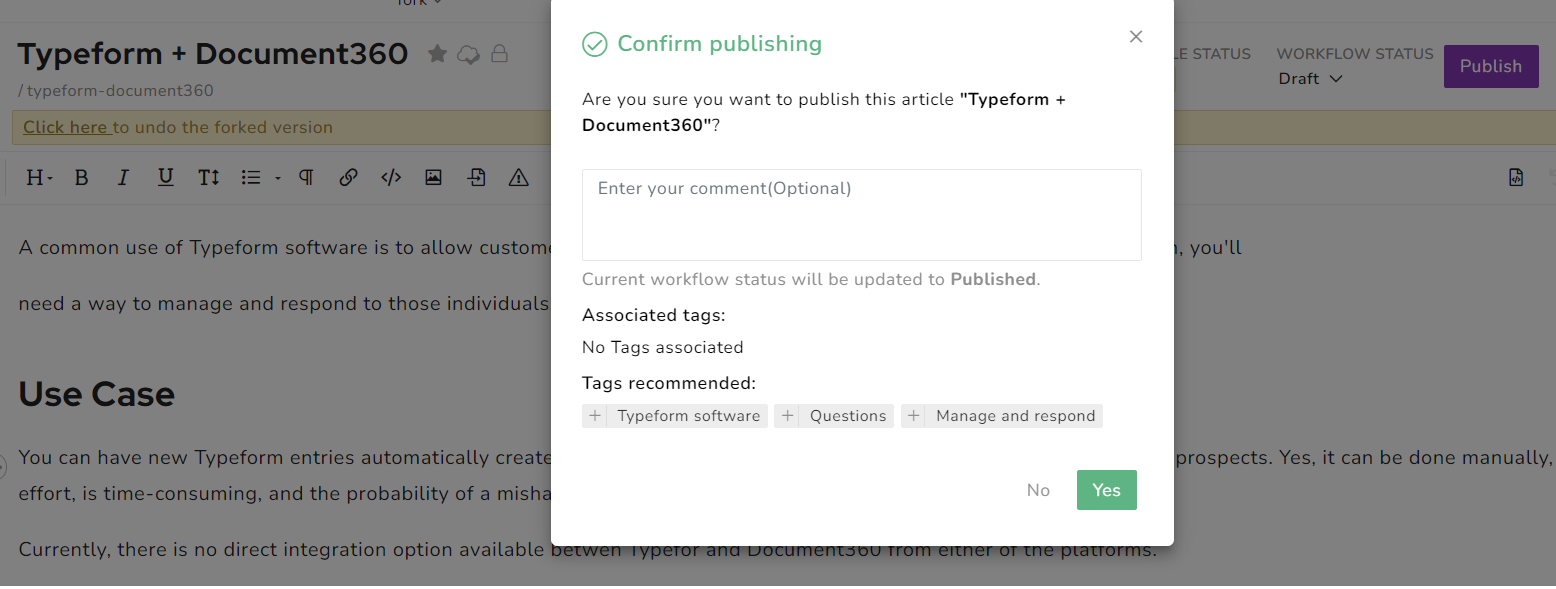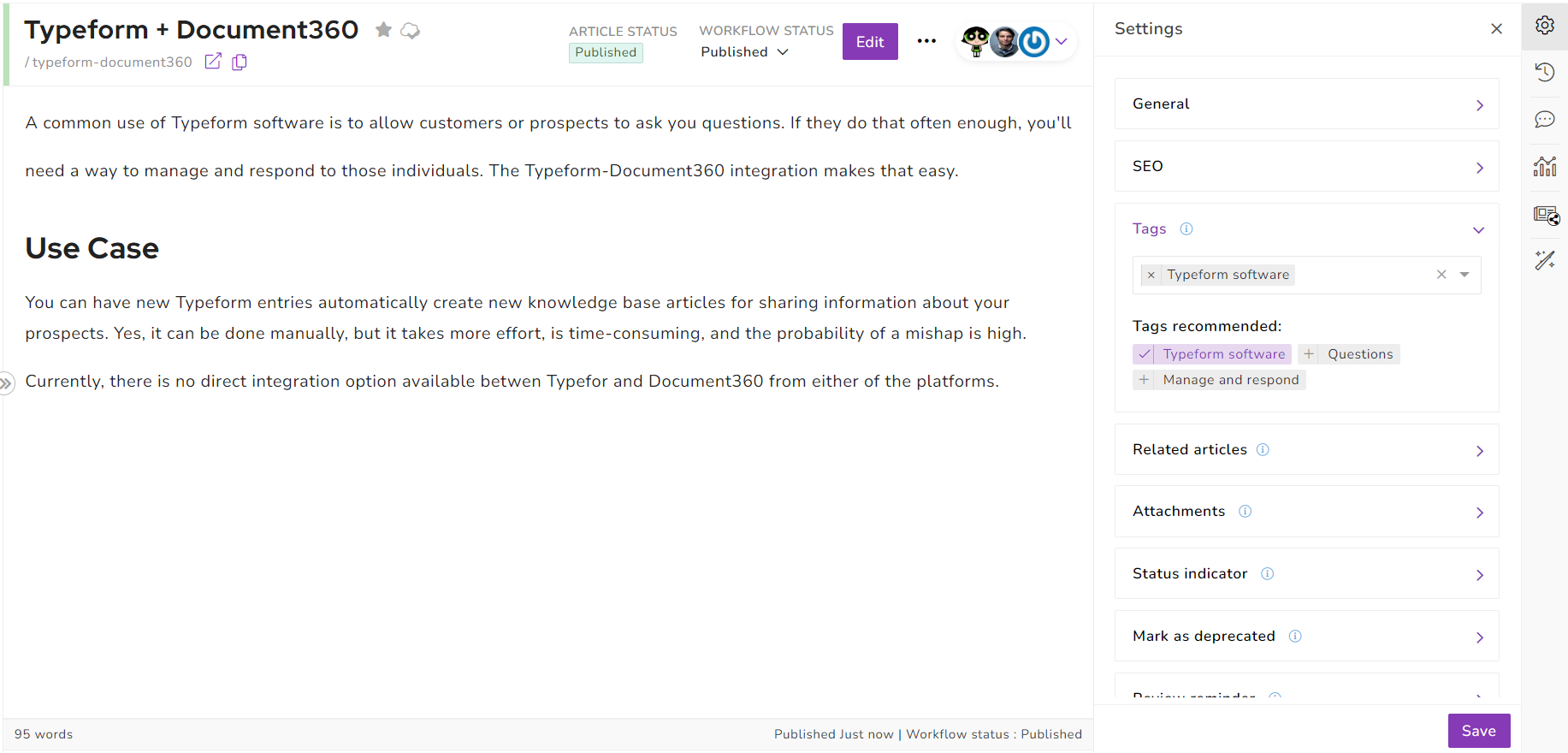Growth of knowledge base
Day-by-day the volume of articles within knowledge base keeps growing as the markets are launching more innovative products across all domains. In general, the volume of your knowledge base significantly increases based on the frequency of the creation of new articles, updates on the articles being published, and relevance of the information being added on the subject matter.
While the growth is a dynamic process, the information being added should provide a deeper and more comprehensive understanding of the subject, ultimately benefiting both contributors and readers as well.
As a content writer, you are required to group the content logically, and from the readers’ view, you should be able to find related content based on the topics. The purpose of logical grouping is to help readers easier to understand complex information by breaking into smaller contents through many articles. And this logical grouping, can be achieved through tags.
Need for the tags!
Tags are keywords or labels that are added to articles to help organize and categorize them. They can be leveraged in helping the readers to identify/find related articles on the same topic.
Here are some common uses of tags in articles:
Categorization: Tags are used to categorize articles according to topic, making it easier for readers to find articles that interest them. For instance, a blog featuring about food might use tags like “recipes,” “cooking tips”, “reviews,” and so on.
Navigation: Tags can also be used to create navigation menus on a webpage, allowing readers to easily browse articles by topics.
Related content: Tags can be used to suggest related articles to readers, based on the tags assigned to the article they are currently reading.
This helps keep readers engaged and encourages them to explore more content on the website.
Overall, tags are a useful tool for organizing and categorizing content on a website and can help improve the user experience for readers.
Schedule a demo with one of our experts to take a deeper dive into Document360
Book A Demo
Document360 – AI Tag Recommender
AI Tag recommendation is one of the robust features in Document360 that can vastly improve the user experience of a knowledge base platform. In this feature blog, I will describe about the implementation of the feature both for a newly created article and as well as existing article as well.
We first needed to identify corresponding tags for the articles based on the content. We have harnessed the power of machine learning algorithms to analyse the text of the articles, recognize the topics and themes. The artificial intelligence library then tokenizes the text, remove stop words and identify parts of speech, and group them based on the topics. Next step is we require a human touch to validate them and accept these tags to be associated with the articles.
We are now ensuring users do not miss to keep up the good practices of adding tags to the articles they are publishing. Wait a moment, we are not stopping just there you can now also add tags to the existing articles without publishing them as well. Document360 provides two methods for you to associate tags, one at the event of publishing an article and another at the article settings.
Editor – Publish
You can now add tags while publishing the article, you can choose to accept the generated tags from AI of Document360 and same can be managed at Content Tools > Documentation > Tags Management as well.

Editor – Article Settings
In case, if you have skipped to add to them while publishing, don’t you worry, we have covered the scenario and through article settings the tags can be generated and associated as well.

Effective use of Tags
You can also associate the newly generated tags by our system to your files. By tagging files with relevant keywords or phrases, you can quickly and easily search for and retrieve specific files, regardless of their location within your Drive folder structure. These tags you are associating should be relevant to the types of files you are working with and be consistent across all files to ensure uniformity. Not only this, but you can also filter articles, category as pages and files in the full portal search which helps you to discover closely related items you are looking for.
Final thoughts
Overall, the tag recommendation feature greatly improves the user experience of the knowledge base platform by making it easier for users to find relevant articles. By combining machine learning and human input, we were able to generate accurate and relevant tags for each article. The tag recommendation algorithm provides users with useful suggestions that save time and improve the accuracy of the tags. We believe that this feature will increase user engagement and satisfaction with our knowledge base platform.
Also Read: The Future of Knowledge Base in the Age of Generative AI




 –
– 

